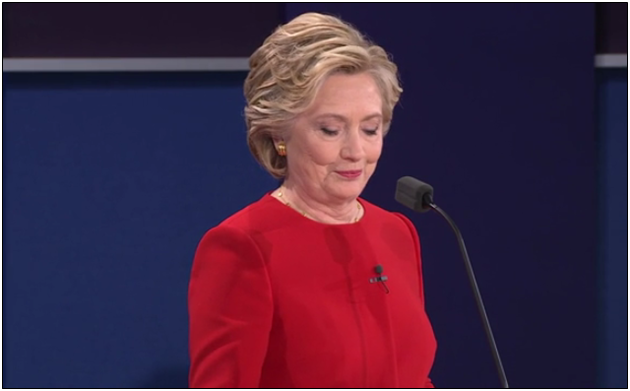By Natalia Castro
The inevitability of a Supreme Court nomination once the new President takes office in January might be the easiest reason to vote against Hillary Clinton in November. The courts have already decided on gun control, campaign finance regulation, and partial birth abortions; but with Clinton vying for her own justice on the matters, the entire concept of stare decisis will fall into question.
Clinton’s gun control proposals are advertised as “common sense gun reform” but in practice they are limitations toward the Second Amendment which the Supreme Court has already ruled against.
DC v. Heller made a clear 5-4 decision in 2008 to protect the right to bear arms as a Second Amendment guaranteed individual right toward self protection. The decision maintained that in the pursuit of a lawful goal, such as self defense, use of a personal firearm is justified.
Clinton has already announced that to her, the Supreme Court was simply wrong. Leaked audio had her saying, ““We’ve got to go after this. And here again, the Supreme Court is wrong on the Second Amendment. And I am going to make that case every chance I get.”
During the third presidential debate, Clinton proclaimed her love for gun rights, but then quickly reminded the audience that she “disagreed with the way the court applied the Second Amendment in that case” and advocated for the decisions reversal.
Reversing the Heller decision does not open the door to “common sense” reforms on gun control, it strips the people of the constitutional right to use their own weapon lawfully.
Clinton will not stop there though, with control over the next Supreme Court judge and an entire generation of district and appellate court judges, Clinton hopes to continue breaking apart the rights guaranteed in the Bill of Rights.
In 2009 Citizens United v. Federal Election Commission upheld the First Amendment right to free speech when contributing to political campaigns. The 5-4 decision ruled that expenditures by for profit corporations, labor unions and other associations cannot be restricted by government. Advocates for the free speech hailed this as a victory for freedom, but Clinton is not an advocate for free speech.
In fact, the reversal of the Citizens United decision has been a pillar of the Clinton campaign.
Money that companies spend to promote their interest in governance is what Clinton claimed during the debate, “undermined the election system in our country because of the way it permits dark, unaccountable money to come into our electoral system.”
Where corporations see political activism, Clinton sees an opportunity to limit rights the Supreme Court already declared irrevocable.
And finally, Clinton has aims to reverse the 2007 Supreme Court ruling on partial birth abortions. The case of Gonzales v. Carhart upheld intact and dilation late term abortions. Clinton and abortion advocates want an exception in which the mother’s life is in danger.
The ruling was simple, the court found that there is “”uncertainty [in the medical community] over whether the barred procedure is ever necessary to preserve a woman’s health” and therefore it is not protected under the parameters established in Roe v. Wade and Stenberg v. Carhart.
Once again, Clinton decided her opinion on the matter is above the law of the land.
During the final debate Clinton proclaimed that, “I do not think that the United States government should be stepping in and making those most personal of decisions. So you can regulate if you are doing so with the life and the health of the mother taken into account.”
Unfortunately for Clinton, this case was determined with the women’s health in mind. In fact it was determined based on the inability for the medical community to meet the burden of proof which determines the mother’s life is in a vital position. Clinton’s advocacy for the case’s reversal is not based on women’s health, it’s based on abortion promotion. She views the procedure as a matter of right every woman possesses.
Clinton is not just undermining inalienable rights in her pursuit to liberalize the constitution, she is also dramatically altering the Supreme Court’s role in setting lasting precedents for national law.
Stare decisis is described as the doctrine of precedent by the Cornell Law Review, they explain that this doctrine is vital for promoting “the evenhanded, predictable, and consistent development of legal principles.” Without precedent, any change in the country’s political climate can alter the constitutional process.
Clinton wants the power to alter what the framers established and the courts have instituted, rather than use their judgements as the law of the land — something liberals usually argue in favor of. But in these three cases Clinton has pledged to undermine the Second and First Amendment, as well as expand what Roe v. Wade began.
These are only the cases Clinton has already pledged to reverse, with 4 years of judicial nominations Clinton could take apart other Supreme Court precedents we have not even thought of yet.
Natalia Castro is a contributing editor at Americans for Limited Government.







